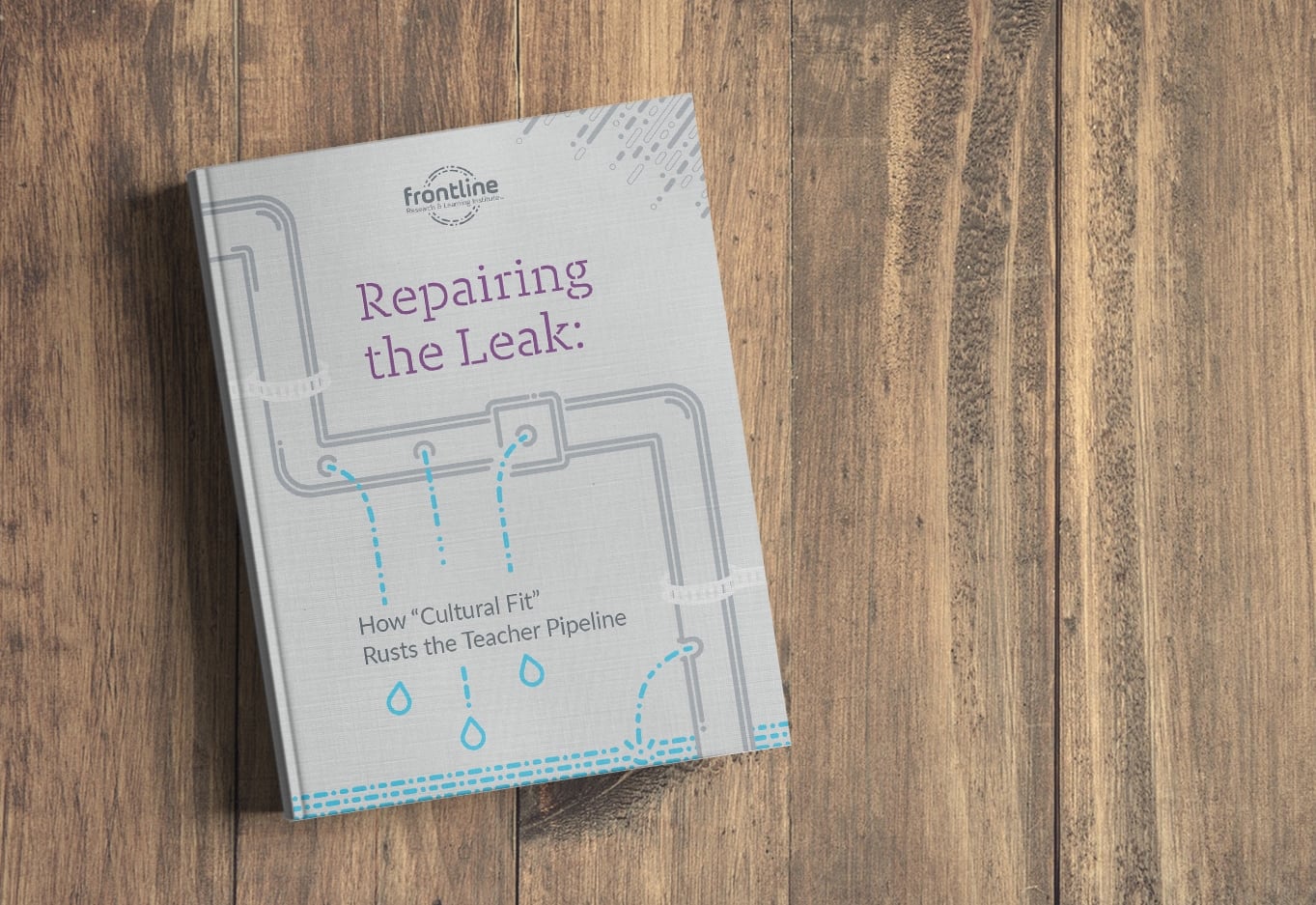According to survey of district leaders in 47 states, “cultural fit” is rarely defined, but ranks high among teacher hiring criteria
MALVERN, PA. — December 4, 2018 — The Frontline Research & Learning Institute today released Repairing the Leak: How “Cultural Fit” Rusts the Teacher Pipeline, which examines district leaders’ perceptions about the size and quality of the educator pipeline, and strategies that districts are using to recruit and hire teachers. The analysis, which is rooted in a survey of 594 human resources personnel across 47 states, suggests that hiring managers often prioritize “cultural fit” for teachers, without using clear definitions or rubrics, a process that may contribute to hiring bias and the perceived shortage of qualified educators.
“Cultural fit of incoming employees is an important part of building a strong teaching staff who are all aligned around our goals and values as an organization,” says Beth Dalton, assistant superintendent of Kildeer CCSD 96 in Illinois. “But to ensure we are building a diverse team of the best people for the job, it’s important to employ objective, standardized criteria when assessing for fit.”
According to the report, 63 percent of hiring managers rated cultural fit as “important” or “very important” in hiring decisions. While many reported having a standardized hiring process, fewer than five percent reported the use of a consistent rubric for assessing cultural fit. Survey respondents, which included human resources personnel, assistant principals and principals across large, medium and small districts, shared information about the structure of their organization’s recruiting and hiring process, and their perception of its effectiveness.
“Our prior research suggested that heavy reliance on word-of-mouth or local referral sources may be contributing to perceived, or actual talent gaps for school districts,” said Elizabeth Combs, managing director of the Frontline Research & Learning Institute, and co-author of the report. “With this report, our goal is to help hiring managers and leaders understand and take steps to reduce, the risk of bias in the hiring process, to expand the size, quality and diversity of their teacher pipeline.”
Major employers outside of education are taking steps to reduce the use of cultural fit as a hiring criterion out of concern that it makes the hiring process vulnerable to unconscious bias. Repairing the Leak suggests districts could enhance their recruiting and hiring efforts by adopting clear rubrics and protocols to ensure that personal beliefs or interpretations do not contribute to bias when evaluating for cultural fit.
“A standard process is a critical element of any hiring system, but clear and consistently implemented rubrics for evaluating candidates are essential for mitigating bias at any one point in the hiring process,” said Sarah Silverman, Ph.D., chief talent officer at Whiteboard Advisors and co-author of the report. “Without a clear rubric that everyone understands and can implement with fidelity, individuals are left to make determinations based upon gut feelings that may be less informed by cultural fit than an individual’s likeability, or similarity to the existing teaching force.”
Repairing the Leak follows a previous report from the Institute, A Leak in the Pipeline, which studied anonymized data from more than 800 school districts nationwide to identify trends in hiring practices that may have unintended consequences for teacher turnover. The report found that while applicants increasingly came to districts from public job boards or public websites, districts relied largely on local referrals or district websites to source candidates. As a result, school district decision-makers may be relying too heavily upon known sources to the exclusion of a diverse broader pipeline of prospective candidates.
About the Frontline Research & Learning Institute
The Frontline Research & Learning Institute is a division of Frontline Education, a leading school administration software provider to K-12 school districts nationwide. The Institute is a learning organization dedicated to providing data-driven research, resources and observations to support and advance the educational community. Driven by the vast amount of records across Frontline’s comprehensive solutions portfolio, the Institute leverages data from more than 9,500 K-12 organizations and several million users to reach findings and provide benchmarks that inform strategic decision-making for the education community. The Frontline Research & Learning Institute works with Johns Hopkins Center for Research and Reform in Education to ensure all research reports and analyses are rigorously-validated and representative of national data.
